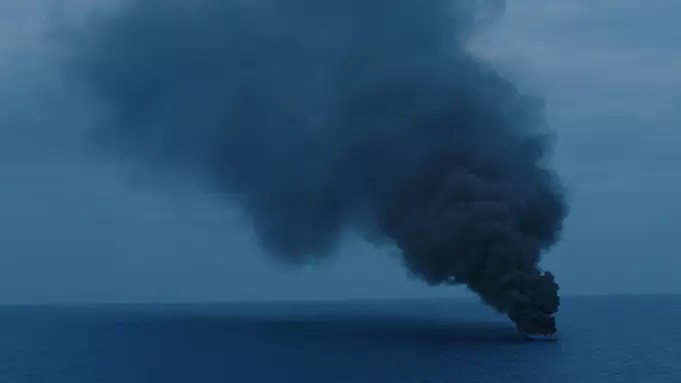The plight of migrants in Europe is a subject that continues to resonate across continents, and filmmaker Sam Abbas’s upcoming project, “Europe’s New Faces,” seeks to encapsulate this harrowing experience. By documenting a journey that begins with treacherous crossings of the Mediterranean Sea from Libya to the cramped squats of Paris, Abbas provides a unique lens through which audiences can gain empathy and understanding. This film, the result of three years of dedicated observation and engagement with migrant communities, shines a light on the complexities and often overlooked dimensions of their experiences.
Abbas’s immersive approach involved spending significant time within migrant communities, allowing him to witness their day-to-day struggles, which are often marked by isolation and the daunting challenge of navigating bureaucratic hurdles. By spending nearly three years documenting these lives, Abbas gained insights into a reality starkly different from his own. “The isolation is profound,” he notes, emphasizing how cultural and language barriers exacerbated feelings of alienation for many migrants. His firsthand experiences at sea and within Parisian squats reveal the harsh realities faced by those trying to rebuild their lives in a foreign land.
The observational nature of “Europe’s New Faces” permits viewers to step into the shoes of migrants, confronting the stereotypes and biases that have become interwoven with their existence in Europe. Abbas intends for the film to transcend mere storytelling; it aims to forge a deeper connection between the audience and the subjects represented on-screen. In doing so, he hopes to challenge prevailing narratives around migration.
One compelling aspect of the film is its portrayal of the makeshift living conditions faced by many migrants. Abbas paints a vivid picture of squatter communities formed within derelict buildings—old post offices, banks, and corporate offices—where basic amenities are scarce. These visuals serve a dual purpose: they encapsulate the harsh realities of migrant life while simultaneously highlighting their resilience and the communal bonds formed amidst hardship.
While documenting these communities, Abbas notes that everyday tasks—like washing or renewing identification documents—often morph into monumental challenges due to the lack of resources or legal recognition. By sharing these experiences, he underscores the systemic barriers that many migrants must navigate, further compounding their struggles.
“Europe’s New Faces” does not shy away from exploring the darker aspects of the migrant journey, including the constant threat of legal repercussions and exploitation in the workforce. Through compelling interviews and narratives of peril suffered during treacherous sea crossings, the film humanizes the stark statistics of migration. Abbas emphasizes, “It’s a reality that many of us never see.” By bringing these stories to forefront, he hopes to evoke empathy and respect for the courage exhibited by migrants who risk everything for a chance at a better life.
Additionally, the inclusion of music from acclaimed composer Bertrand Bonello serves to enhance the film’s emotional impact, elevating the stories shared and providing a poignant backdrop to the unfolding narratives.
As Abbas prepares for the film’s release in late 2025, it is evident that “Europe’s New Faces” is not merely a documentary but a vital conversation starter on the ethics of immigration and the responsibilities of society towards its most vulnerable inhabitants. It invites audiences to confront their own perceptions and biases while shedding light on a rarely depicted side of Europe.
Abbas’s prior works, including “Obstaculum” and “The Wedding,” have established him as a provocative voice in contemporary cinema, often tackling themes of identity, belonging, and resistance. With “Europe’s New Faces,” he continues this tradition, crafting a narrative that reminds us of our shared humanity, urging viewers to recognize the strength, resilience, and dignity of those who find themselves caught in the web of migration.
Through Sam Abbas’s lens, “Europe’s New Faces” promises to be a profound exploration of the migrant experience, ultimately challenging viewers to reevaluate their understanding of migration and its implications within our global society.


Leave a Reply